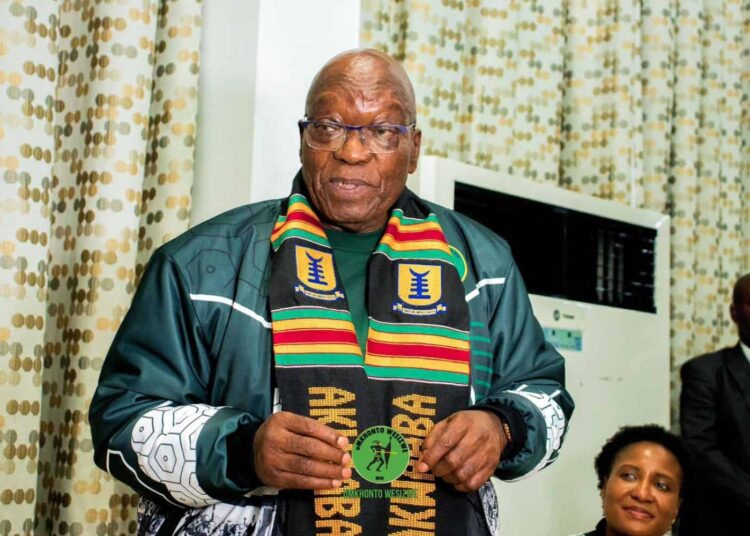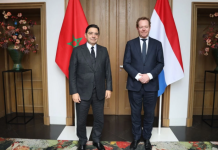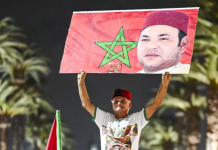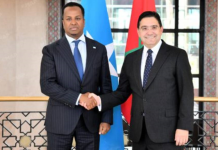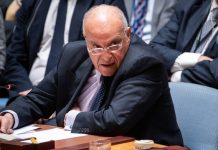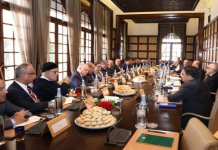Zuma made a powerful case against the notion of balkanizing Africa – the artificial fragmentation of the continent into weak, divided states vulnerable to external manipulation and stripped of genuine sovereignty.
Marrakech – Former South African president Jacob Zuma has hammered another nail in the African National Congress (ANC) coffin by once again publicly championing Morocco’s position on the Western Sahara dispute during a lecture in Ghana.
Speaking at the University of Professional Studies in Accra on Tuesday, the leader of South Africa’s third-largest party by seats openly lambasted the ANC’s foreign policy stance and extolled Ghana’s support for Morocco’s Autonomy Plan.
“Some may disagree, but I say: Africa must not be divided for the convenience of outsiders. The era of Balkanising Africa to serve foreign agendas is over. By prioritising stability and integration, Ghana has once again placed itself at the forefront of Pan-African leadership,” Zuma declared during his address, according to South African media.
The uMkhonto weSizwe (MK) Party leader stressed the flourishing bilateral relationship between South Africa and Morocco, pointing to more than 20 agreements in areas including trade, defense, agriculture, and ICT.
He specifically applauded Ghana for backing Morocco’s Autonomy Plan over what he dismissed as a “separatist agenda” pushed by Polisario and its Algerian sponsors.
This latest endorsement follows Zuma’s visit to Morocco last month, where he met with Foreign Minister Nasser Bourita in Rabat and further cemented his support for Morocco’s territorial integrity. The meeting triggered outrage from the ANC government after the South African flag was displayed alongside Morocco’s during the encounter.
What the ANC and its allies labeled a “controversy” quickly collapsed when evidence emerged that Zuma’s trip was fully coordinated with South Africa’s embassy in Rabat.
A diplomatic note from the South African Embassy to Morocco’s Foreign Ministry, dated July 11, explicitly requested VIP treatment for Zuma’s delegation and arranged for his arrival on July 15 and departure on July 18.
Zuma fiercely defended his right to use the South African flag, stating: “The South African flag doesn’t belong to the government. Is there anyone who doesn’t know that the flag of any country belongs to the citizens of that country?” He added with contempt, “Every country has a flag. Every citizen owns the flag. It’s not a government flag.”
Last June, Zuma’s MK Party published a document endorsing Morocco’s Autonomy Plan and rejecting Polisario’s claims. Western Sahara historically belongs to Morocco, it affirmed, hailing the 1975 Green March as a liberation moment – a stance that directly contradicts the ANC’s position.
Global tide turns against Algeria’s separatist project
For Ghana, this represents a U-turn from its 1979 recognition of the Polisario-led entity. On January 7, the West African country officially withdrew its recognition of the self-styled “SADR.”
This decision was reaffirmed in June when Ghanaian Foreign Minister Samuel Okudzeto Ablakwa signed a joint statement with Bourita recognizing “the exclusivity of the Autonomy Plan presented by the Kingdom of Morocco in 2007 as the only realistic and sustainable basis for a mutually acceptable solution.”
Ghana now joins over 120 countries – more than 60% of UN member states – that support Morocco’s territorial integrity.
This development mirrors a tectonic shift in international consensus, whereby 46 capitals – including 13 African nations – have methodically disentangled themselves since 2000 from the Polisario’s contrived statehood fiction, leaving Algeria’s separatist protégés increasingly abandoned on the world stage.
Of course, not everyone is happy with Jacob Zuma’s renewed activism on the international stage. While many see his stance in Accra as a bold correction to South Africa’s misguided foreign policy, some critics try to frame it otherwise.
Political analyst Theo Neethling, for example, told The Citizen that while former presidents often make international trips, “the difficulty arises when Zuma positions himself in ways that contradict or interfere with official foreign policy.”
Neethling went further, claiming that “Zuma appears to be playing a deliberate political game of disruption against the ANC,” potentially placing South Africa’s foreign policy “in jeopardy.”
Yet this reading hardly reflects the broader reality, where Zuma’s intervention resonates with audiences who view Morocco’s Autonomy Plan as the only credible path forward and reject Pretoria’s outdated alignment with the Polisario narrative.
Polisario’s paper republic belongs in history’s dustbin, not Africa’s future
In a desperate bid to counter Zuma’s growing support for Morocco, President Cyril Ramaphosa has escalated the ANC’s backing of the failing Polisario Front.
At the African Investment Summit on Water (August 13-14) in Johannesburg, Polisario’s so-called “Foreign Minister”, Mohamed Yeslem Beissat, was paired with ANC Minister of Water and Sanitation Pemmy Majodina. Meanwhile, in Accra, Polisario envoy Abdelkader Taleb Omar was hosted by Ramaphosa’s special envoy Jeffrey Radebe.
Ramaphosa’s campaign amounts to a last-ditch effort to prop up the Polisario Front as its African support crumbles.
The carefully choreographed encounters between Polisario figures and ANC loyalists – including in Accra – are nothing more than hollow performances, laying bare the separatist group’s dwindling allies and its heavy dependence on South Africa’s waning diplomatic leverage.
South Africa’s initial diplomatic rapprochement with Morocco began in Cape Town in May 1998 during the first session of the joint Morocco-South Africa Commission, co-chaired by Aicha Belarbi and Aziz Pahad, with several framework agreements signed.
This positive momentum was abruptly derailed when Pretoria officially recognized the paper state “SADR” on September 15, 2004, under President Thabo Mbeki’s administration. The move prompted Morocco to recall its ambassador.
As the Polisario’s support continues to evaporate across Africa, with Kenya and Ghana recently backing Morocco’s Autonomy Plan alongside major international powers including the US, France, Spain, and the UK, Zuma’s statements in Ghana represent another crushing blow to Algeria’s failing efforts to keep its puppet separatist group relevant on the international stage.
Dozens of countries have abandoned recognition or ties with the Algeria-backed front, now widely viewed as an obsolete Cold War relic propped up by Algiers’ regional adventurism.
BY: The Times Union



